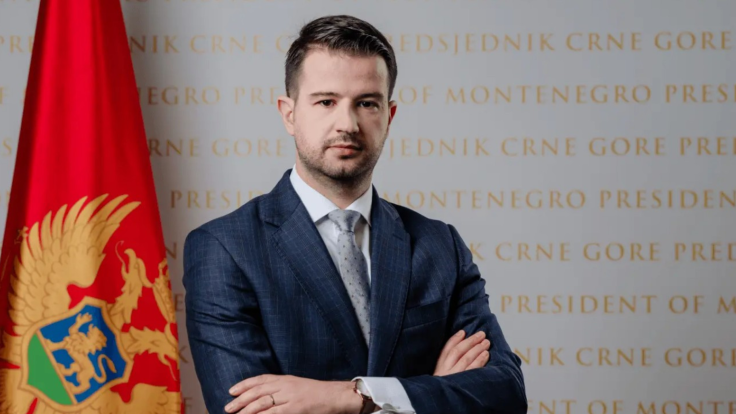Montenegro's President Faces Escalating Pressure That Could Shape the Nation's Future
Rising tensions between institutions are slowing Montenegro's reform progress

Rising tensions within Montenegro's political institutions have placed President Jakov Milatović at the centre of an escalating power struggle that he says threatens both the stability of his office and the country's wider political direction at a crucial moment in its European ambitions.
The president's remarks have intensified debate over the resilience of Montenegro's political system and its ability to deliver long-promised reforms as the country pursues closer alignment with the European Union, with a target of full membership by 2028.
Montenegro began accession talks in 2012 and is widely considered a frontrunner among EU candidate states, having opened all negotiating chapters, a milestone unmatched by its regional peers.
Background
President Milatović, elected in 2023 after campaigning as a pro-European reformer, entered office pledging to strengthen democratic institutions, boost economic growth and restore public confidence in governance.
With a background in economics from Oxford University and previous experience as Montenegro's minister of economic development, Milatović positioned himself as a technocratic leader focused on reforms rather than political infighting.
However, those ambitions have been challenged by a turbulent political environment marked by shifting parliamentary alliances, contested appointments and institutional disputes.
Relations between the presidency, parliament and party blocs have been persistently strained, leading to delays in legislation and raising concerns about the country's readiness to meet the complex legal and judicial requirements tied to EU accession.
President's Concerns
In comments reported by El-Balad, Milatović said he is facing mounting political pressure aimed at weakening the role of the presidency and restricting his ability to perform constitutional duties. He warned that growing interference risks undermining the independence of state institutions and stalling reform momentum, although he did not name any specific opponents or political groups.
Observers say the remarks highlight deepening divisions inside Montenegro's political establishment, which have become more visible in recent months as rival factions clash over reform priorities and power-sharing arrangements.
Political analysts note that disputes over institutional authority have intensified as Montenegro's EU prospects move closer to a decisive phase.
Milatović has consistently framed European integration as essential to long-term stability, stating: 'The enlargement of the EU has always been an investment.'
He has also warned that reduced European engagement in the Western Balkans could allow other powers to exploit political instability, pointing specifically to rising concerns over cyber threats and disinformation efforts across the region.
Institutional and Public Impact
The political tensions have raised growing questions about government stability and the effectiveness of Montenegro's state institutions.
Prolonged conflict between the presidency and competing political factions could further slow legislative activity and administrative coordination at a time when the nation faces mounting pressure to deliver judicial reforms, tackle corruption and strengthen regulatory oversight.
Analysts caution that citizens may already feel the impact through slower government decision-making, delays to public projects and increasing uncertainty about Montenegro's economic prospects.
Public patience, they warn, could erode if the political standoff continues to overshadow reform efforts.
Despite political challenges, Montenegro has made tangible progress toward European integration. The country aligns its foreign and security policy with EU standards and is a NATO member, enhancing its geopolitical profile.
Milatović has pointed to close cooperation with international partners including France, Europol and Interpol as key to tackling organised crime, which remains one of the largest obstacles to EU membership.
He has confirmed that prosecutions have already occurred involving individuals inside Montenegro's own institutions accused of collusion with criminal networks, reinforcing what he has described as a strict public mandate for zero tolerance towards corruption.
Domestic and International Reaction
Milatović's remarks have sparked broad discussion in Podgorica and across national media, with political figures urging renewed cooperation between state bodies to prevent further erosion of public trust.
International observers have echoed calls for dialogue and compromise, warning that sustained institutional conflict could derail reform progress and weaken confidence in Montenegro's EU bid.
Outlook
The coming months are expected to prove decisive for Montenegro's political trajectory. Parliamentary debates, negotiations over the balance of institutional powers and the pace of judicial and economic reforms will determine whether the pressure on President Milatović's office eases or deepens.
Analysts say the outcome will shape not only Montenegro's internal balance of power but also the credibility of its democratic reform agenda and its ambition to join the European Union by 2028.
© Copyright IBTimes 2025. All rights reserved.





















